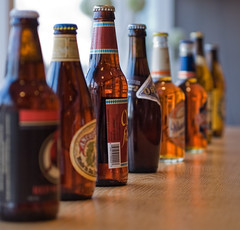Wednesday
Dec152010
Is success a function of the number of experiments you try?
 Wednesday, December 15, 2010 at 8:07AM
Wednesday, December 15, 2010 at 8:07AM Or is it more about which experiments? In my Think, Try, Learn writing I'm working to go deeper into the idea that "There's no such thing as failure, because you can always learn something," which is thin. It also goes to the "A for effort" idea, which again, doesn't address our desire to have our goals reached.
Going back to the question, you can try lots of experiments, but they might not pan out. That's one of the characteristics of trial-and-error discovery. But how do you know which experiments to try? After all, we have limited energy.
Thoughts?


Reader Comments (7)
2) I believe that it needs to be a mix of methodical / random to generate the best results. Methodical experimentation can be driven by peer experience, which I think is beginning to emerge in groups like QS and sites like Edison. Random experiments have the capacity to produce the unintended, which is great too.
MC
[Curt Rosengren] I think it has to be both. You might accidentally hit the jackpot by trying random experiments, but if you narrow your focus down to experiments that are most relevant to the insights you want to discover, "what you learn" will be more valuable and applicable. And the the greater the number of relevant experiments you try, the more potential there is to hit that jackpot (whatever that looks like for you).
By choosing the one that you prefer, you'll at least be getting pleasure out of it, regardless of attaining your goals or not.
There's a great book on decision-making by Jonah Lehrer called "How We Decide" which elaborate on when it's appropriate to decide by instinct or by rational mind.